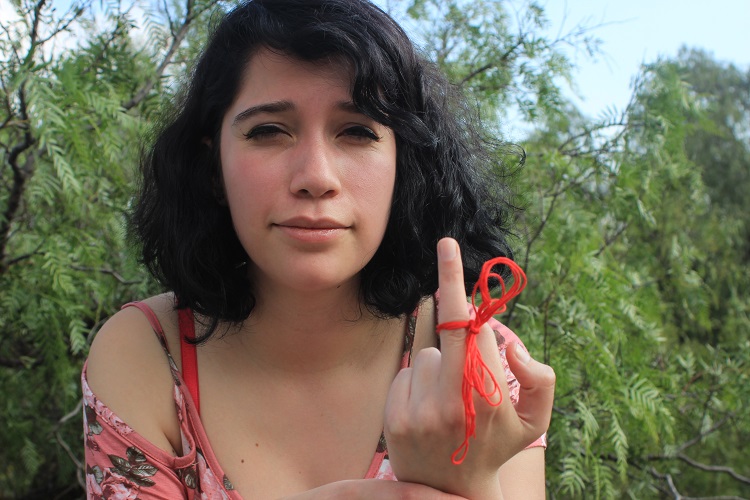Falling in love and building a life together is a dream many hold close to their hearts. But for individuals Living With HIV, the path to love and marriage can come with added challenges, misconceptions, and emotional hurdles. Fortunately, the world is changing—and with more awareness, support, and medical advancements, people with HIV are thriving in healthy, committed relationships.
This comprehensive guide explores what it truly means to experience love and marriage while living with HIV. Whether you’re HIV-positive yourself, dating someone who is, or navigating marriage with an HIV diagnosis, this blog offers practical insights, emotional support, and relationship strategies you can trust.
Understanding HIV and Modern Relationships
HIV Today: Not What It Once Was
In the past, an HIV diagnosis was often seen as a life-ending event—medically and socially. Today, thanks to antiretroviral therapy (ART), people living with HIV can lead long, full, and healthy lives. Undetectable equals untransmittable (U=U) is not just a slogan—it’s a scientifically proven fact. For couples, this has revolutionized what intimacy and commitment look like.
Living with HIV no longer means giving up on love or marriage. In fact, many HIV-positive individuals report stronger emotional bonds with their partners due to the level of communication and trust required in navigating this journey together.
HIV-Positive Dating: From Stigma to Strength
Dating while HIV-positive still comes with emotional vulnerability. The fear of rejection is real, and societal stigma can make disclosure difficult. Yet, many people find love with partners who are understanding, educated, and open. Being upfront, practicing safe sex, and focusing on mutual respect is the foundation of any successful HIV relationship.
In cities like Mumbai, Delhi, Bangalore, and Hyderabad, HIV awareness campaigns and support groups have made dating more approachable and less taboo. PositiveSingles and similar platforms provide safe spaces for HIV-positive singles to connect, eliminating the pressure of disclosing status too soon.
Marriage with HIV: Breaking Down the Myths
Yes, HIV-Positive People Can Get Married
Marriage is very much on the table for HIV-positive individuals—both to other HIV-positive partners and HIV-negative ones. With modern medication, proper counseling, and mutual understanding, a thriving marriage is not only possible—it’s becoming more common.
In countries like India, South Africa, Nigeria, and Brazil, where HIV is more prevalent, HIV-friendly marriage counseling services and legal support are helping couples plan weddings, family lives, and futures together.
Legal Aspects of Marrying with HIV
Laws differ from country to country, but generally, people living with HIV have the right to marry. In India, there is no law barring an HIV-positive person from marrying. However, disclosure may be necessary in some cases. Being transparent not only strengthens your legal standing but also sets the tone for honesty and trust within your marriage.
If you’re considering marriage in a city like Delhi or Chennai, connect with local HIV legal aid services for personalized advice.
How to Tell Your Partner About Your HIV Status
The Right Time and Approach
Disclosing your HIV status is deeply personal, and timing matters. It’s important to choose a calm, private moment where both you and your partner can be emotionally present. Be direct, offer accurate medical facts, and express your feelings honestly.
Rehearse what you want to say and anticipate questions. You might say:
“I want to share something important with you because I care about you. I’m living with HIV, but I’m healthy and undetectable. I’d like us to talk about what that means.”
Partner Support: What to Expect
A caring partner will listen and want to learn. They may be surprised or even scared initially, but education and communication help overcome that. Share resources about U=U, ART, and ways to maintain a healthy relationship.
In supportive cities like San Francisco, Toronto, and Amsterdam, clinics and support centers offer couple-based HIV education sessions, helping partners understand the emotional and medical landscape together.
Safe Sex and HIV: Staying Healthy Together
U=U and What It Means for Your Relationship
When someone with HIV is on medication and maintains an undetectable viral load, they cannot transmit HIV sexually. This concept—Undetectable = Untransmittable—is key to both emotional and physical security in relationships.
Regular check-ups, adherence to ART, and open conversations keep both partners protected and informed.
Other Protection Strategies: Condoms and PrEP
In mixed-status couples, additional measures like condom use and pre-exposure prophylaxis (PrEP) can offer extra peace of mind. PrEP is especially helpful for HIV-negative partners and is available in many cities worldwide, including Los Angeles, London, Sydney, and Cape Town.
Family Planning and Parenthood with HIV
Yes, You Can Have Children
Thanks to medical advancements, HIV-positive individuals and couples can have biological children without passing on the virus. Sperm washing, IVF, and PrEP for the negative partner are some options. For HIV-positive women, maintaining viral suppression during pregnancy drastically reduces transmission risks.
In Bangalore, hospitals like NIMHANS and MS Ramaiah offer HIV-focused reproductive care. Similarly, in Johannesburg and Nairobi, clinics offer advanced treatment for HIV-affected couples wanting to start families.
Adoption as a Loving Option
Some couples prefer to adopt, especially in countries where adoption agencies are becoming more inclusive of HIV-positive applicants. It’s crucial to work with agencies that understand the medical realities and are not biased against applicants living with HIV.
Mental Health, Self-Worth, and Love
Battling Internalized Stigma
Many people with HIV struggle with feelings of unworthiness. They fear rejection or believe they don’t deserve love or family life. This internalized stigma is a huge barrier to happy relationships. Counseling, therapy, and support groups help break these thought patterns.
Cities like London, Kolkata, and Vancouver have strong HIV-positive mental health networks. These services encourage you to embrace your worth and believe in your ability to love and be loved.
The Power of Peer Support
Nothing heals isolation like community. Joining HIV support groups, either in-person or online, offers validation, strength, and friendship. PositiveSingles forums, for instance, are filled with people navigating the same journey—offering advice, encouragement, and stories of hope.
Building a Strong Marriage with HIV
Communication and Trust as the Foundation
Honest dialogue is vital. Whether you’re discussing your medication routine, future plans, or fears about health, clear communication builds trust. Marriage counseling tailored to HIV-positive couples is available in many global cities and can be incredibly grounding.
In Chennai, HIV-focused counseling centers help couples work through emotional and relationship dynamics in a safe space. These services are also growing in cities like Accra, Rio de Janeiro, and Bangkok.
Long-Term Planning with HIV
Marriage means thinking ahead—financial stability, family planning, and shared goals. With proper health coverage, long-term ART access, and a reliable support system, HIV-positive couples can build futures as bright as any others.
Conclusion: Love Has No Status
Living With HIV doesn’t diminish your value. You are lovable, capable, and fully deserving of the kind of love that sustains, heals, and grows. Whether you’re dating, engaged, or already married, your relationship has every chance to succeed.
The key lies in education, open dialogue, medical support, and communities that lift you up. From New Delhi to New York, London to Lagos, HIV-positive couples are redefining love and marriage in ways that are bold, beautiful, and brave.




